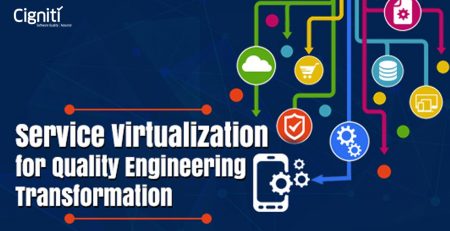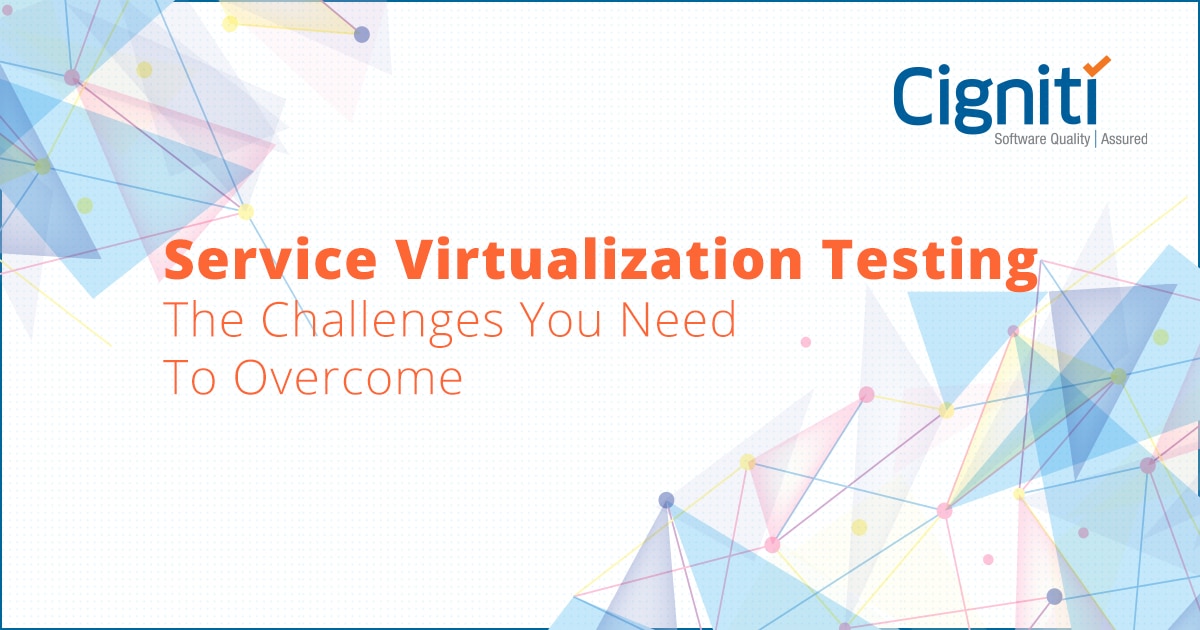API Testing and Service Virtualization by Specialist QA Vendors– Critical Success Factors in the IoT & Digital era
As global enterprises embark on meeting objectives related to being mobile first, with digital at the center of the business strategy in an IOT era, the demand for API testing and service virtualization by specialist QA vendors has become very important.
A Gartner research report pegs the market for testing and service virtualization at around US$200 million and growing at a CAGR of 12%. Also Gartner estimates that the overall software testing tools market at $1.5 billion, with a 5% growth rate in 2014. However what goes underneath is the need for specialist QA vendors and independent software testing providers who can implement advanced API testing and Service virtualization solutions leveraging these tools.
As the adoption of agile and SOA based applications are increasingly prevalent, it is forcing both software development and test organizations change their strategies, approaches, frameworks, and tools to be able to achieve a wider, more precise view of heterogeneous and complex system quality. In the same parlance Application-programming interface testing or otherwise famously called as API testing has further become very important.
Shift Left and Do Early
Predominantly the paradigm shift that has resulted due to heavy lifting of applications driven by SOA which are dependent on service orchestrations, increased agile software development practices have resulted in moving away from the traditional performance and functional testing aspects. Instead it has resulted to be able to shift left your testing approach and has increased the effective need of early testing and most importantly more frequently. As a result it is very much possible to eliminate a lot of challenges in modern day’s heterogeneous IT stack and applications developed by distributed teams as many software development life cycle activities can happen earlier and become parallel again.
Leverage specialist testing – Do it early and Independently
Leveraging independent testing approaches, each system component of a team can be tested individually, separately in the context of its real environment. This also allows you not to be detailed by the issues that can surface later during integration, which obviously are highly expensive to fix. Also, while it comes to testing APIs or services, the testing team members can use a more rapid approach of having flexible method stubs that act as replications and near to close substitutes for dependent resources.
Service Virtualization – The ultimate enabler
While the above contexts clearly ascertain the need to have speed and quality together, it is but natural to look for a solution that can productize and toolify the creation of stubs to mimic, simulate and replicate the functional behaviour of complex, interdependent services.
- SV ensures both dev and qa teams to be able to replicate and model the functional behaviour of both limited and interdependent subscription, publisher based services.
- This also offers advantages in the sense; you would not ideally need to access the real instance of databases and components.
- QA teams can offer smart virtual services leveraging SV tools and offer a step more than the traditional unit tests.
- QA teams can offer API tests that verify and validate the technically correct functionality and behaviour of interfaces through automated request generations and verifying corresponding published responses (AKA – Subscriber and Publisher architectures)
- This could mean, QA teams can also emulate the entire real world functionality and provide the appropriate responses on any number of supported protocols, in a variety of messaging formats.
- Thus, Service virtualization shifts the ability to test applications earlier in their development life cycle, enabling integration and release processes to happen faster, with higher quality and less risk.
- It also enables other non-functional testing, such as performance testing against a simulated connection or load testing that simulates multiple connections.
Why Service Virtualization is a QA and Tester’s cup of tea?
From a QA and testing perspective, the behaviour of individual classes can be tested with simulating the objects, whereas the behaviour of entire network back- end services can be simulated and tested with service virtualization. As a result, simulation is best suited for unit tests while service virtualization is better for integration and performance tests. Also these virtual components eliminate the requirement of individual developers in fact for writing the stubs thus saving time and creating acceleration.
Actually if you need to completely develop a close to real simulation for supporting test cases, it becomes quite challenging. Also this can take away significant effort and time from the original essence of development of application itself. Also since it is almost impossible to find an end-to-end test infrastructure to sharing these stubs across the teams, its even challenging. But, Virtualized services, help team emulate environments and make their behaviour available to the entire team. They can be deployed throughout the entire production cycle, consistently delivering the same behaviour and functionality for anyone who wants to use them at any time.
Choosing the right SV strategy – Leverage Specialized Independent software testing vendors
While market offers both commercial and open source tools that offer SV and API testing solutions, having specialist testing service providers who can bring in the required expertise is the key, as it is not always about tooling. You need QA teams to have a detailed understanding of the underlying SOA principles and technologies and a transformation of QA practices will be needed to maintain quality of service. QA teams specifically need to acquire new skills and new technologies.
If you get your SV strategy wrong, don’t be surprised that you could actually experience test cycle delays due to unavailability of components connected to applications under test, affecting release to the market.
As much as SV is important part of continuous testing, Virtualization of test data, network and automation of lab environments must not be left unattended. A complete virtualization strategy is what that can offer fuller ROI than just a partially conceived SV.
Also before choosing the tools, ensure you have done adequate planning and processes that can bring in a long term view of existing processes, tool requirements, benefits, costs, skills and training. Do make sure you have a proof of concept to assess the potential benefits.
Future looks brighter for specialist QA vendors
As the advent of mobile and cloud computing and significant disruption that digital business and the IoT are enabling, this will result in the increased adoption of service/API testing and service virtualization solutions. The IoT, in particular, will evolve and create innovation in these tools and services which needs, vendors to specialize in offering support for diverse IoT protocols as they become adopted increasingly in a consumer-facing IT solution landscape. Needless to say specialist QA vendors who can offer integrated Service Virtualization and API testing will stand winners.





Leave a Reply